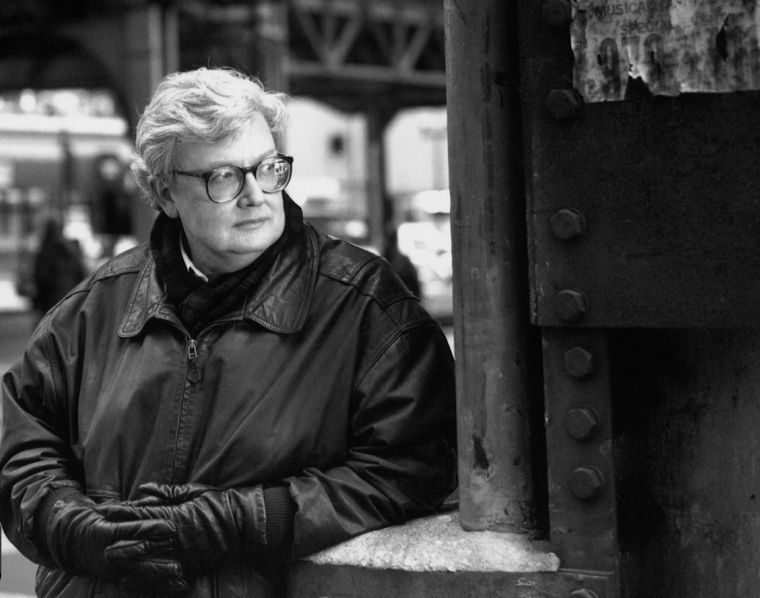Politics and women in film honored at Ebertfest
Apr 22, 2017
Following the Thursday afternoon screening of “To Sleep With Anger,” writer and director Charles Burnett sat onstage while a woman in the back right corner asked him a question. As a white woman, she expressed her struggle to understand the familial circumstances of the dysfunctional black family in Burnett’s 1990 film.
Burnett understood the woman’s struggle; he’d been in her position many times.
“I feel comfortable watching a movie by Spielberg,” Burnett said. “It seems all my life I grew with those kinds of movies, and it’s kind of unfair.”
Director and actor Robert Townsend, moderating the discussion, quickly interjected. He knew how to relate to Spielberg’s films, and he wanted the woman to do the same with Burnett’s.
“He’s giving you such a beautiful glimpse into a complicated family, but it’s still family,” Townsend said. “The theme is really universal, but sometimes the music and slang can be different.” Chaz Ebert hosts Ebertfest, which honors her late husband and acclaimed film critic Roger Ebert.
Get The Daily Illini in your inbox!
She focuses on kindness, empathy and compassion — the words Townsend wanted the woman to embrace instead of understanding.
But this year, she added a new adjective to the mantra she calls her life’s mission: forgiveness.
She doesn’t shy away from letting the audience know the importance of her four words. And she isn’t afraid to repeat them throughout the weekend.
Ebert also isn’t afraid to speak politically at the central Illinois film festival.
Ebert and festival director Nate Kohn select the films to screen, and they’ve made a conscious choice to use her four words as a political statement. The festival opened Wednesday night with “Hair,” the 1979 film adaption of the blockbuster musical. It’s an inherently political festival introduction. “It is vital and important. This country is in serious trouble — worse, in my opinion, than ‘68,” said Michael Butler, the film’s producer. While “Hair” tackles the 1960s anti-war, counter-cultural movement, the subsequent screenings showcase another specific focus.
Ebertfest is telling women’s stories through different decades.
“The Handmaiden,” a 2016 erotic thriller from South Korea, uses a lesbian love affair as a symbol of male oppression in 1930s Japan.
There’s also “Hysteria,” set in the Victorian era, and it’s about the invention of the vibrator. Director Tanya Wexler’s film is straight-forward. It had to be, she said. She didn’t want the film viewed as a joke.
Ebertfest continues until Sunday; however, the highlight undoubtedly came Friday night.
Just three months after her Best Actress Oscar nomination, Isabelle Huppert visited Champaign to accompany the screening of “Elle.” In the 2016 French thriller, Huppert is a rape victim subverting expectations. Huppert said she liked the unemotional, non-psychological character. She wanted to play a someone that was “alive.”
“What I was interested in was to reflect something as truthful as possible,” Huppert said. “This character, this film in particular and that story allowed me to do so.” Ebertfest continues through Sunday at the Virginia Theatre in downtown Champaign, ending with an 11 a.m. showing of the 2004 musical “De-Lovely.”






